A greenhouse complex that used to belong to BASF has changed owners. The complex is now owned by VIB, with ILVO as a strategic partner, and with financial support from the Flemish government. It will serve as an 'Agro-Incubator'.
The high-tech facility will make its resources and knowledge available to agribusinesses and researchers in order to build sustainable agricultural applications together. Vice Minister-President of the Flemish Government and Flemish Minister for Innovation and Agriculture Hilde Crevits opened the research greenhouse and pilot infrastructure for plant research.
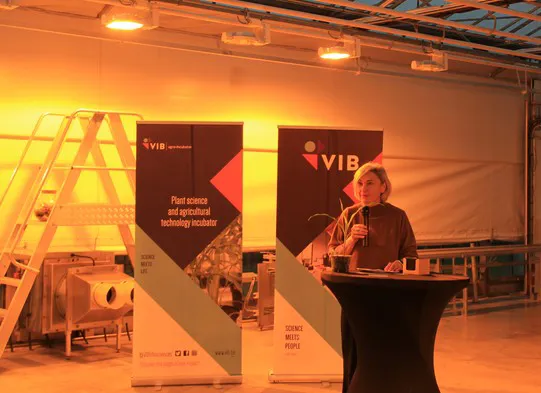
Automatic phenotyping
The VIB Agro-Incubator has many facilities for crop research. The greenhouses are equipped with an installation for controlled growth of different types of crops and simultaneous monitoring of their growth. Among other things, scientists can determine the light and watering conditions under which the plants grow, and cameras and measuring devices are used to calculate agronomically important parameters such as seed yield.
On-site laboratories allow these observations to be linked to molecular information, creating a detailed insight into how plants adapt their growth under changing conditions. Moreover, the adjacent field is available for field trials to confirm findings from the lab and the greenhouse.
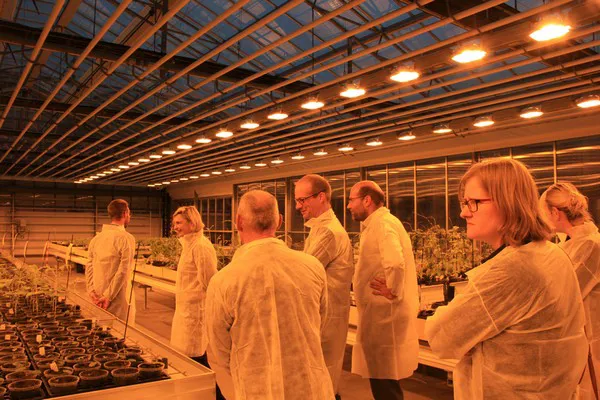
Collaboration between VIB and ILVO
The VIB Agro-Incubator is located on the former CropDesign site (BASF) and is being fully modernized by VIB with the support of the Flemish government, in consultation with ILVO, the Flemish Institute for Agricultural, Fisheries and Food Research. Both institutes will lead the site with their expertise.
Research for climate-proof agriculture
The complete infrastructure allows researchers to examine how a plant reacts to, for example, long periods of drought, and how the plant can become more resistant to this. For example, there is currently a collaboration between VIB and the Meise Botanical Garden to gather information on the drought tolerance of beans. In the partnership, about 200 varieties of wild beans are tested for drought resistance. By combining observations of plant growth under different watering regimes with molecular data, the researchers will learn which genes in the plant DNA are responsible for drought resistance. Once the underlying mechanisms of plant growth under drought conditions have been unraveled, the findings can be translated to other food crops, such as soya or maize, and contribute to climate-sustainable solutions.
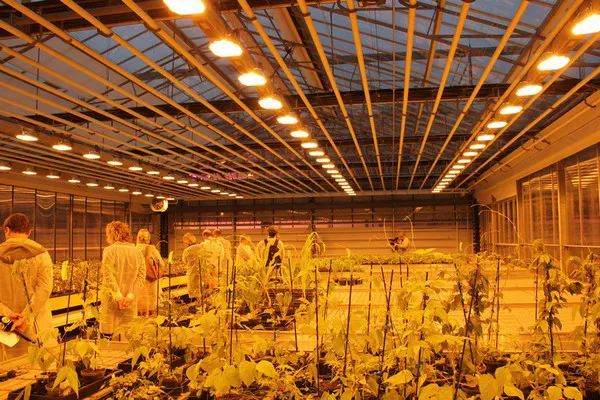
First collaborations with companies are a fact
One of the facility's key partners is Inari Agriculture, a growing AgTech start-up focusing on ecological solutions to increase crop yields for a more sustainable food system. Inari received the 2020 Newcomer of the Year trophy from Flanders Investment & Trade for their accelerated method of developing high-yield crops that require less fertilizer and water. Experts from the company use the greenhouse of the VIB Agro-Incubator to grow and study plants developed in the company's Ghent R&D facility.
"We know that VIB is as committed to reforming the global food system as we are at Inari; this makes them an ideal partner," says Fred van Ex, vice president of R&D at Inari and managing director of the Inari facility in Ghent. "To meet the ambitious targets of the European Union's Farm to Fork strategy, close partnerships between the public and private sector with technologically advanced facilities are needed. The combination of Inari SEEDesign technology and the VIB Agro-Incubator offers just that."
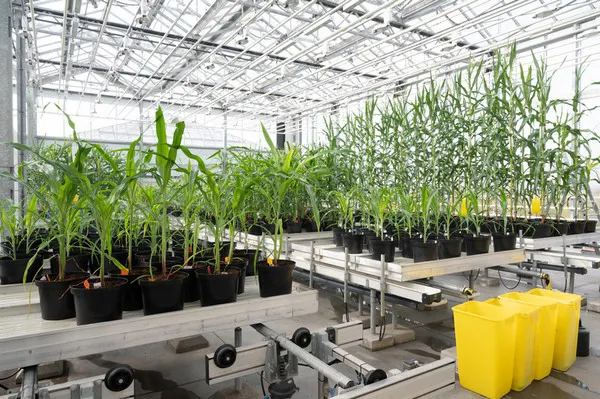
Strategic location
The strategic location in the center of the Flemish agribiotech cluster in Ghent leads to unique collaborations between research centers and companies. The common goal is to develop agricultural solutions. Besides projects with well-known players such as SESVanderHave and Inari, aimed at improving sugar beet and maize cultivation respectively, VIB wants to make the technology and knowledge of the Agro-Incubator accessible to start-ups. Providing accommodation and support to young entrepreneurs gives them the opportunity to develop in the plant biotech sector. The focus here is more than ever on climate adaptation, crop protection, and advanced, digital agricultural technologies.
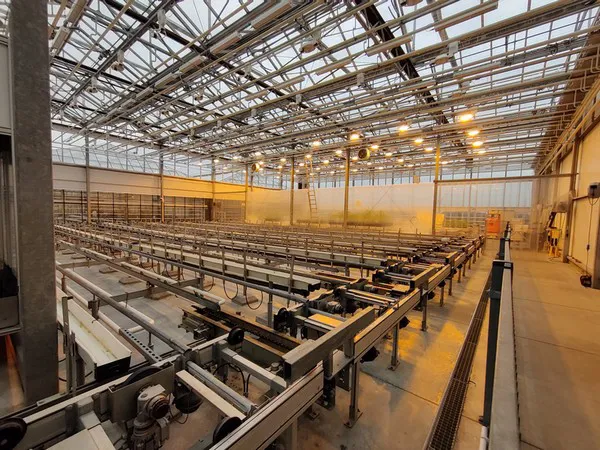
Photo credits: Lander Briels / VIB
For more information:
Instituut voor Landbouw-,
Visserij- en Voedingsonderzoek
www.ilvo.vlaanderen.be/nl
ilvo@ilvo.vlaanderen.be
